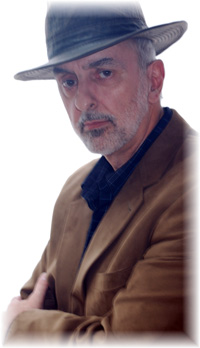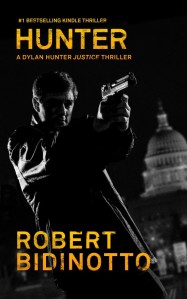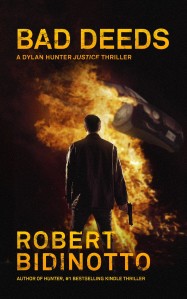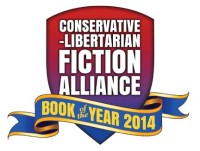J. Carson Black is the author of three short stories and thirteen novels, including the critically acclaimed Laura Cardinal series, recently optioned by Winkler Films/Sony Television.
Since April of 2011, her books have sold over 300,000 copies.
Her first thriller for the Amazon publishing imprint Thomas & Mercer, THE SHOP, climbed to the #1 spot on the Kindle Top 100, among all books. Her latest thriller, ICON—also released by Thomas & Mercer—is another big bestseller in both trade paperback and ebook editions. And it also has inspired a live action short/music video, “Vengeance.”
Known as “Maggy” to friends, this prolific, highly successful author exudes sparkling wit in conversation and correspondence. Her intelligence and charm are fully evident in this recent interview with The Vigilante Author.
***
The Vigilante Author: Congratulations on the stunning success of your novels. You have a best-selling mystery-thriller series, plus stand-alone thrillers, too. ICON seems to break new topical ground for you. What was its genesis?
J. Carson Black: I have always been fascinated by the cult of celebrity. What’s it like to be the center of all that attention? I didn’t think I’d like it, and it occurred to me that maybe some celebrities aren’t happy with that lifestyle, either. What if they had a chance to escape? Would they take it? Could they take it? Once you’re on the train, it’s tough to jump off.
I’m also intrigued by this idea. Some of the stars who are getting the biggest paychecks? They’re dead. On the recent anniversary of Marilyn Monroe’s death, I read a number of articles postulating what might have happened had she lived to be eighty-six. Would she have remained a big star or would she have faded into obscurity as she got older and tastes changed?
The Vigilante Author: She was still a sex symbol when she died. Hard to believe that she could’ve sustained that same level of public adulation as she got older.
J. Carson Black: She was in danger of running right smack into the Sixties, and what a culture clash that would be—Marilyn versus Janice Joplin. But now Marilyn Monroe is at top of the Dead Star hit parade, and makes millions more than she ever made in life.
When Michael Jackson was alive, he spent so much money his estate was in danger of imploding—possibly one reason he chose to go on the European tour just before his death. But now he can no longer spend money—he just makes it.
The Vigilante Author: That’s a great point, that all these pop culture icons are larger in death than they were in life. So how does that figure into the storyline of ICON?
J. Carson Black: When is a person worth more dead than alive? That’s the question that led me to write ICON.
![]() Superstar Max Conroy, an actor who can guarantee box office, is a cash cow. A lot of people depend on him for their livelihood. When he escapes from a dry-out center in Sedona, Arizona, he realizes he can change his life. No more marriage to a woman he doesn’t love and who doesn’t love him, no more vampire movies that make a lot of money but, frankly, well and truly suck. No more need for publicity stunts or having to go somewhere to “be seen.” He can be plain old Max Conroy again.
Superstar Max Conroy, an actor who can guarantee box office, is a cash cow. A lot of people depend on him for their livelihood. When he escapes from a dry-out center in Sedona, Arizona, he realizes he can change his life. No more marriage to a woman he doesn’t love and who doesn’t love him, no more vampire movies that make a lot of money but, frankly, well and truly suck. No more need for publicity stunts or having to go somewhere to “be seen.” He can be plain old Max Conroy again.
There’s only one problem: Max is suffering from hallucinations and paranoia as a result of some of the dubious therapies at The Desert Oasis Healing Center. Make that two problems: Someone is coming to kill him.
He escapes, thumbing his way to a hole-in-the-wall town called Paradox, feeling more himself than he has in years. Now he just wants to hit the reset button. But there are people after him—an androgynous assassin and her boy are on his trail, and it doesn’t look like Max is going to make it out of Paradox alive.
The Vigilante Author: Great premise! And given the kind of money that superstars generate, not implausible, either.
So how would you characterize your fiction, by genre, themes, or topical focus?
J. Carson Black: Crime-fiction thrillers and straight thrillers. There’s usually some police procedural element to them. I am drawn to the cult of celebrity and the ridiculous parts of our culture, and also abuse of power issues.
The Vigilante Author: What in your background do you think prompted you to become a writer, Maggy?
 J. Carson Black: I was born and raised an only child in Tucson, Arizona. I love the desert and will never leave it. If I see pictures of a desert, my eyes light up. Mojave, Sonoran, Chihuahuan, it don’t matter to me—I love desert!
J. Carson Black: I was born and raised an only child in Tucson, Arizona. I love the desert and will never leave it. If I see pictures of a desert, my eyes light up. Mojave, Sonoran, Chihuahuan, it don’t matter to me—I love desert!
When I was in junior high and part of high school, my very smart parents decided to get me out of town during the summer so I wouldn’t smoke pot and get into my friends’ parents’ liquor cabinet. So I took a lot of paperback books along—we picked them up at drugstore revolving racks in small towns—
The Vigilante Author: I remember those. Fondly.
J. Carson Black: —and we covered the West and Midwest, hitting as many National Parks as we could. I treasure that time. In fact, so often, I just want to go back there. I’d draw and write and read and listen to rock ’n’ roll on the truck radio. And develop crushes on the boys in neighboring campsites.
The Vigilante Author: So, like most writers, you started young?
J. Carson Black: I wrote since I was about four years old, when I used the back of my dad’s test papers (he was a schoolteacher) to crayon my first “book,” THE EASTER EEG.
The Vigilante Author: “EEG”?
 J. Carson Black: I’ve been manufacturing typos ever since! My parents bought me a manual typewriter and I began writing novels about horses. Like HOTSPUR, A STALLION, or STORMY MISTRAL OF WHISPERING PINES. I rarely got past Chapter One—I have a ton of them.
J. Carson Black: I’ve been manufacturing typos ever since! My parents bought me a manual typewriter and I began writing novels about horses. Like HOTSPUR, A STALLION, or STORMY MISTRAL OF WHISPERING PINES. I rarely got past Chapter One—I have a ton of them.
I didn’t really try to write a real book until later, after my operatic career (I use the term loosely) fizzled. Stephen King and Peter Straub influenced me greatly, and I modeled my first published novel, DARKSCOPE, on that kind of horror. DARKSCOPE is about a camera that takes pictures of the past. Hey, even then I understood the need for a high concept!
The Vigilante Author: No wonder Hollywood has come knocking at your door. So, what other writers have influenced you, and how?
J. Carson Black: Okay, here’s the list. I studied so many of these guys, beginning with “my boys,” four writers I would study by buying their books and writing all over them—T. Jefferson Parker, Jonathan Kellerman, Robert Crais, and Lee Child.
The Vigilante Author: I’m a huge fan of Crais and Child. I’ve had the pleasure to interview Lee, too.
J. Carson Black: But wait, there’s more! Sue Grafton, J.A. Jance, James W. Hall, Randy Wayne White, David Baldacci, C.J. Box, Craig Johnson, Andrew Klavan, Carl Hiaasen, James Lee Burke, John Lescroart, Patricia Cornwell, Joe Finder, Nevada Barr, John Grisham, Dennis Lehane.
The Vigilante Author: An aspiring writer could certainly find worse role models.
J. Carson Black: I learn from them. I rip apart their books and see what they’re doing. They teach me, and they don’t even know it.
The Vigilante Author: So. Here you are, this talented young lady wandering in the desert—literally—a voracious reader with a penchant for thrillers, and scribbling your own story fragments. How do these humble and unlikely beginnings lead you to a career as a best-selling author?
J. Carson Black: Ah, the recipe for success! My career looked something like this:
Get a book deal. Get dumped. Get another book deal, get dumped. Decide to buckle down and become a better writer, to really work at it. Get inspired. Write the best book I’ve ever written. Get a two-book deal for, wow, twenty times the money I was paid for my first book! (Don’t hyperventilate, I was paid almost nothing for the first one.) Two books later, get dumped again.
The Vigilante Author: Seems to me I’ve heard this sort of author biography before…
 J. Carson Black: Decide that this time I’m really going to write the best book of my life. I take my time. I get the Best Agent in the World. Really. This time it will happen, and it needs to, because if you don’t get mid six figures these days, you are not going to make it in the Big Six world. The publishers won’t put any money behind you. So we go out with it. My agent is sure it’s a hit.
J. Carson Black: Decide that this time I’m really going to write the best book of my life. I take my time. I get the Best Agent in the World. Really. This time it will happen, and it needs to, because if you don’t get mid six figures these days, you are not going to make it in the Big Six world. The publishers won’t put any money behind you. So we go out with it. My agent is sure it’s a hit.
Thirty-five rejections from the best editors in the business later, I ask my wonderful agent if I should just go ahead and put the damn thing up on Amazon.
The Vigilante Author: Yes, I have heard this sort of thing before. But you obviously drew something from all of this. What was it?
J. Carson Black: So what did I learn from this? One thing leads to another. Get a piece of ground and try to hold onto it, and go from that piece to another. Be open to possibilities. Don’t be afraid to try.
For some reason—don’t look at me for a reason, because I didn’t advertise or guest-blog or do much of anything—my books took off. THE SHOP took off. And I documented all of it and sent that info to my agent. It made her very happy. Especially because I gave her my backlist [previously published books] for sub [subsidiary] rights.
The Vigilante Author: The most important thing is writing great stories. Sometimes, they’ll find an audience all on their own, without much pushing. And that obviously happened with yours. So what came next?
J. Carson Black: Then I saw Thomas & Mercer signed [best-selling indie authors Joe] Konrath and [Blake] Crouch—and Barry Eisler. I didn’t wait to be chosen. I called my agent and asked her to approach them. I got a three-book deal with them—one of them was THE SHOP—and I kept my other books under my own name.
The Vigilante Author: And it hasn’t stopped there. What about that TV deal? How did that happen?
J. Carson Black: A producer was looking at ebook thrillers and he found one of my Laura Cardinal books, DARKNESS ON THE EDGE OF TOWN, on Amazon. It just happened to appeal to him in a certain way—he’d been thinking of a similar character to mine.
So now I have an option for a TV series. This is for a book written eight years ago. A book that wasn’t just on life support, but had been given the final rites, until Amazon came along.
The Vigilante Author: My blog readers know that Amazon has offered terrific opportunities for self-publishing writers like me, through their Kindle Direct Publishing ebook division and their CreateSpace print division. But now they’ve also moved into direct competition with the big publishers by opening “Amazon Publishing,” with its own genre imprints, such as Thomas & Mercer for mysteries and thrillers.
Maggy, you’re among the first authors to be accepted by Amazon Publishing. Care to share any first-hand impressions and experiences?
J. Carson Black: Thomas & Mercer is wonderful, a breath of fresh air. They don’t have all the nervous tics that come from the [established] publishers—they are more open to ideas.
 For instance, they asked me what I thought they should put on the cover of ICON, I told them in detail, and their wonderful cover artist executed it beautifully. They ask for input every step of the way. They don’t nix your title. They discuss marketing with you and ask you what your experience has been, because they’ve seen you go up the ranks and actually give you credit for your marketing savvy. They ask you what your typical reader looks like. They ask you what to look for in your vernacular, so the copy editor doesn’t mess up your Elmore Leonard riffs. They ask you to work with them on cover copy.
For instance, they asked me what I thought they should put on the cover of ICON, I told them in detail, and their wonderful cover artist executed it beautifully. They ask for input every step of the way. They don’t nix your title. They discuss marketing with you and ask you what your experience has been, because they’ve seen you go up the ranks and actually give you credit for your marketing savvy. They ask you what your typical reader looks like. They ask you what to look for in your vernacular, so the copy editor doesn’t mess up your Elmore Leonard riffs. They ask you to work with them on cover copy.
It’s almost like being an Indie—you are in on the process every step of the way. The trade paperbacks are beautiful. They hold conference calls where you can talk to them and hash out marketing plans. Frankly, it’s an author’s dream.
The Vigilante Author: That’s so great to hear. I’ve heard no public complaints from any of the authors who’ve teamed with Amazon Publishing.
Let me switch gears a bit and ask you about your writing methods. Me, I’m a meticulous outliner. I have to figure out the plot, main characters, and many key elements before I begin writing. What about you?
J. Carson Black: It’s virtually impossible for me to outline. I’ve tried. What a waste of time, energy, and self-flagellation! I have a general idea where I’m going, and a picture of the climax, and then I work it out as I go along. I talk to myself on the page. Since I write thrillers, I know going in I’m probably going to kill some bad guy at the end. There’s going to be a climax. Cue gunfire.
The Vigilante Author: I’ll let that self-flagellation comment pass in silence. Anyway, if someone were eavesdropping on you as you write, what would they hear?
J. Carson Black: I can tell you what the eavesdropper would hear. Lots of f-words, muttered under my breath. I’m talking to myself. Walking around and around the yard. Goofing off. Waking up at 4 a.m. with a sudden great idea. Hour after hour of cajoling myself to write my word allotment for today. 1200 words. Okay, that’s unfathomable today. Try for 750. Okay, rock bottom: 250. Come on, any idiot can write that many words!
And I’d go through the motions, and sometimes it would take off, and I’d write three thousand plus words, and sometimes I’d struggle to get five hundred. I like to be outside, so if I can, I write on the shady terrace. I live in the desert (did I mention how much I love the desert?), so it’s really nice most of the year.
If I don’t start early in the morning, it’s going to be grim. I also write to myself in journals. Dear Diary type stuff. “Why can’t I write????!!!”
But once I get going—I’d say about halfway through the book—it goes quickly and I’m happy. It seems like a ridiculous way to write a book, but I’m on my fourteenth.
The Vigilante Author: Which is thirteen more than I’ve written so far, which means I wouldn’t dare tell you my way is better.
What’s the greatest pleasure or reward for you in writing? Anything you are particularly proud of?
J. Carson Black: The reward for me is if I have a great day writing, good enough so I can gloat. If it’s really good, I know it, and I love that! It’s what I write for.
I am particularly proud of DARKNESS ON THE EDGE OF TOWN. I love that book. And I am also proud of THE SHOP, in which I learned more and broke out in some ways.
 The Vigilante Author: Given your painful publishing history, if you hadn’t been picked up by Thomas & Mercer, would you have still been trying to get traditionally published? Or would you have gone indie? What would you recommend to other aspiring authors?
The Vigilante Author: Given your painful publishing history, if you hadn’t been picked up by Thomas & Mercer, would you have still been trying to get traditionally published? Or would you have gone indie? What would you recommend to other aspiring authors?
J. Carson Black: I would definitely go indie all the way. There really is no career to be found in publishing anymore. It’s almost impossible to get on that merry-go-round. And it’s almost impossible to stay on it when you do get on.
Be your own proprietor and take it out into the marketplace and do the best you can. Have good, professional covers, a great product description—you really have to work it—tag it right [with appropriate descriptive terms on Amazon product pages], and most of all:
Learn. Your. Craft.
There are no shortcuts. You have to know what you’re doing. Learn from the authors you admire. Choose one and study him.
The Vigilante Author: Amen to all of that.
I ask all authors that I interview what qualities they think are most important for any would-be writer to cultivate. And what advice, if any, would they offer. Well?
J. Carson Black: I guess the quality I prize best in a person is: he/she cannot not write. Whether they’re paid for it or not. Something pushes them forward. They can always improve to the best of their ability, and that’s usually enough. Those are the people who find a way.
The other quality is the need to read. It’s a two-part deal: you read, you write.
The Vigilante Author: Where can people buy your books, Maggy?
J. Carson Black: On Amazon. Just type in my name, and my books will come up.
And I’d love it if you’d stop by my J. Carson Black author page on Facebook and “like” it. On that page under “fun extras” you’ll find articles about the woman killed at the beginning of THE SHOP, polls and quizzes, and giveaways.
The Vigilante Author: Anything else you’d like to say in conclusion?
J. Carson Black: Do I get lunch?
The Vigilante Author: Hey, you’re making a lot more money at this gig than I am. How about you buy?
***


 Photo (c) by Debbie Scott
Photo (c) by Debbie Scott





